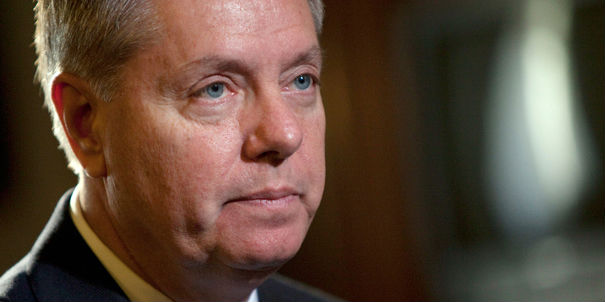September 11, 2001 was the worst day in modern American history. The tragic events and images of 9/11 jarred our national psyche like no event before or since.
Videos by Rare
The barbaric murder of New Hampshire-born journalist James Foley by the Islamic State last week brought back some of those feelings. Shock. Anger. Revenge.
Fear.
After al-Qaeda terrorists flew planes into the twin towers, we thought each day might bring new attacks. We were constantly told to expect homegrown terrorism. If we saw something, say something. The threat levels even became color-coded.
The rise of the Islamic State in Iraq has stoked similar fear. Before IS murdered Foley they were burying Iraqis alive and carrying out mass executions. Leaders of the group boasted that they would hoist the IS flag above the White House.
They threatened to take their fight to American soil. Secretary of Defense Chuck Hagel said they might. Other Washington leaders warned the same.
They may be right. We could be on the eve of another terrorist attack.
But since 9/11, when has this not been true? Since then, when have American leaders said anything different when confronted with troubling new foreign policy developments or potential threats?
Senator Lindsey Graham is a good example.
Right now, Senator Graham is warning the Islamic State could attack the United States. Graham also once warned that Iran could do the same. He said the failure to strike Syria would result in homeland terrorism. He said the same about Libya. Pakistan. Yemen. He certainly said failing to remove Saddam Hussein would lead to more terrorism.
In the thirteen years since the 9/11 attacks, Graham has warned that a failure to react militarily to virtually every foreign conflict could result in terrorists attacking the United States.
Again, in each instance, he could be right. But here’s the rub—if attacks do happen, Graham and other hawks can say ‘I told you so’ and if they don’t happen, they can continue warning they eventually will.
For Graham and the fearmongers there is no political risk.
They put us at risk.
The Islamic State does pose a potential threat markedly different than anything else we’ve seen in that region in recent years. Those who promoted the Iraq war in 2003 insisted that Saddam Hussein represented a terrorist regime hell bent on the destruction of the United States. They were wrong.
The Islamic State could actually become what Iraq war cheerleaders pretended Saddam was. Irony upon irony, we would likely not be confronted by an Islamic State right now if we had not gone to war in Iraq to begin with. Even worse, today’s scenario is something the architects of the Iraq war knew damn well might happen.
If we had taken out Syria’s government last year, as Obama, Graham and others pleaded for, and also Iran’s regime, as the hawks wanted, two major players now fighting IS would have been incapacitated.
Most Americans support airstrikes against IS, but do not want boots on the ground. No one wants to get bogged down in another endless war, but they do believe there is now a threat that must be confronted and defeated.
There was no such hesitance for military action in 2003. Support for that intervention—boots-on-the-ground for an extended period—was popular and decisive.
It seems Americans have learned some lessons even if our leaders have not.
These same leaders say the terrorist threat is greater today than it was before 9/11. But for a decade, they scolded war critics that ‘we have to fight them over there’ so ‘we don’t have to fight them over here.’
They now say we are going to have to fight them here anyway. They say we have to give up our constitutional liberties too.
If the United States takes more comprehensive military action against the Islamic State, it will be due primarily to past mistakes decided by leaders who lack the humility to admit their errors or even the hindsight to avoid repeating them.
We have reason to fear what the Islamic State might do, at home or abroad. We have reason to fear what our government might try to do about it, too.



